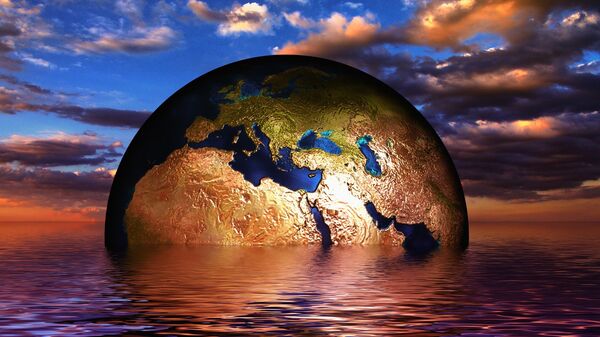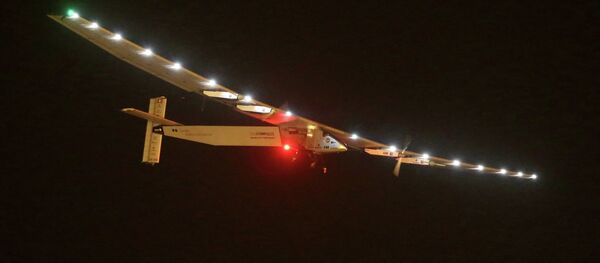PARIS (Sputnik), Daria Chernyshova – "We want it to be a legally binding agreement…. It is still possible, because the talks have one more week ahead of us, and after the leaders left, it is now technical negotiations," Thoriq Ibrahim who is also the chair of the Alliance of Small Island States (AOSIS) said.
"We need to find a political solution as well. We just cannot leave this alone, we don't want this to be another Copenhagen," Ibrahim noted.
The 2009 Copenhagen Climate Change Conference failed to work out a comprehensive climate deal.
"I think the progress has been made and now that the final text that goes to the ministers has come out, what we have asked, everything is somehow reflected in it, now it is up to the politicians to work more and get an agreement," the minister stated, commenting on the current state of climate-related negotiating process in the French capital.
The 21st UN Climate Change Conference held in Paris aims to reach a comprehensive accord that would replace the 1997 Kyoto Protocol, dealing with the reduction of greenhouse gas emissions.
New 1.5-Degree Celsius Warming Target Realistic
Setting a new 1.5-degree Celsius global warming target is possible, the Maldives environment and energy minister told Sputnik.
"We are working on it, and it is still possible to reach… but a lot of work needs to be done. It is a long-term goal," Thoriq Ibrahim said.
The climate deal negotiators also pledged to achieve a certain CO2 emissions' reduction by 2050, without the exact percentage being indicated, and attain a zero global greenhouse gas emissions by 2060-2080 as a long-term goal.
"I think during the negotiations and during the last few days we have been working on what is the best for our Alliance of Small Island States, so we wanted to have the temperature risen below 1.5 degrees [Celsius] and we wanted to have it included in the agreement," Ibrahim said.
According to the minister, a lot of countries have agreed to adopt the new target in the course of the week, including Germany and France.
Ibrahim reminded, however, that as the world temperature increases by 1 degree, the island nations already face coastal erosion, flooding, rainfall patterns change and droughts.
The rise of global temperatures by 2 degrees Celsius after post-industrial era is currently widely seen as an unachievable threshold.
The Intended Nationally Determined Contributions (INDCs), in which countries determine their contributions toward a low-carbon, climate-resilient future, are expected to stop the temperature rise below 3 degrees.
Loss, Damage Issue Must Have Three Elements in Climate Deal
The loss and damage issue should include three main components in the new climate deal, the Maldives environment and energy minister told Sputnik.
"There was progress made in the area of loss and damage as well. We have put proposals that the loss and damage must have three components. One is the assessment part where we need to assess what is happening," Ibrahim stressed.
The second element is an insurance mechanism to come up with assistance immediately in case of sudden disasters such as hurricanes and environmental destruction, he continued.
"And the third thing is there should be a global fund where the contributions should be made based on the emissions of the countries," Ibrahim added.
The plan on dealing with loss and damage incurred by climate change consequences is meant for the long-term implementation, he said.
The UN climate talks in Paris (COP 21) are expected to produce the final text of a binding global climate treaty by Friday, December 11.



